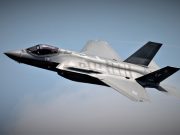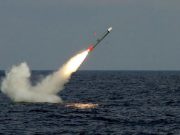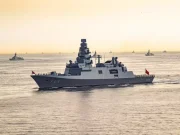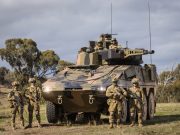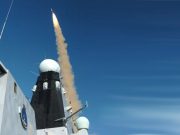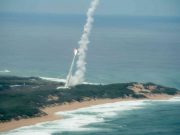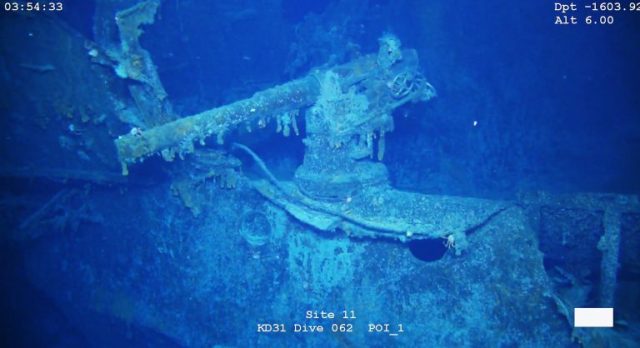The wreck of the German World War I armored battle cruiser SMS Scharnhorst has been located off the Falkland Islands.
The Scharnhorst, flagship of Admiral Maximilian Graf von Spee’s East Asia Squadron, was sunk on December 8, 1914, during the Battle of the Falkland Islands, a crucial naval battle in the early days of WWI.
This discovery is a major breakthrough in the quest to locate all of the ships that comprised the German squadron lost during the battle. The search began on the centenary of the Battle in December 2014 but was initially unsuccessful.
Five years later, the mission was resumed using subsea search equipment. Working from the subsea search vessel, Seabed Constructor, the search operation involved the deployment of four autonomous underwater vehicles (AUVs), exploring a search box of approximately 4,500km2 of seabed. Scharnhorst was discovered on the third day of the search 98 nautical miles south east of Port Stanley at a depth of 1610 metres.
The Battle of the Falkland Islands followed the Battle of Coronel, fought off the coast of Chile in November 1914, where Graf von Spee’s fleet overpowered the Royal Navy and in which 1600 British sailors perished.
The Scharnhorst, built in Hamburg in 1905, was the first to be sunk, having sustained substantial damage inflicted by HMS Invincible and HMS Inflexible. Tragically 2,200 German sailors died, including Graf von Spee himself and his two sons – Heinrich aboard the Gneisenau, and Otto aboard the Nürnberg.
The Falkland Maritime Heritage Trust, which announced the discovery, is now seeking to have the site formerly protected in law.
The film production company TVT has been recording the search from its inception five years ago. Already, experts who have viewed unedited clips confirm that they reveal new information about this important episode in British and German naval history and in the history of the Falkland Islands.
“It is less than a month since Remembrance Day, when we commemorated the millions who died in the First World War and subsequent conflicts. One episode in that conflict was the Battle of the Falklands in 1914,” Donald Lamont, Chairman of The Falklands Maritime Heritage Trust, said.
“The search we organised had as its aim the locating of all ships of the German squadron, so that we may learn more about the Battle and commemorate all who perished in it. The site of the wrecks can now be protected.”




